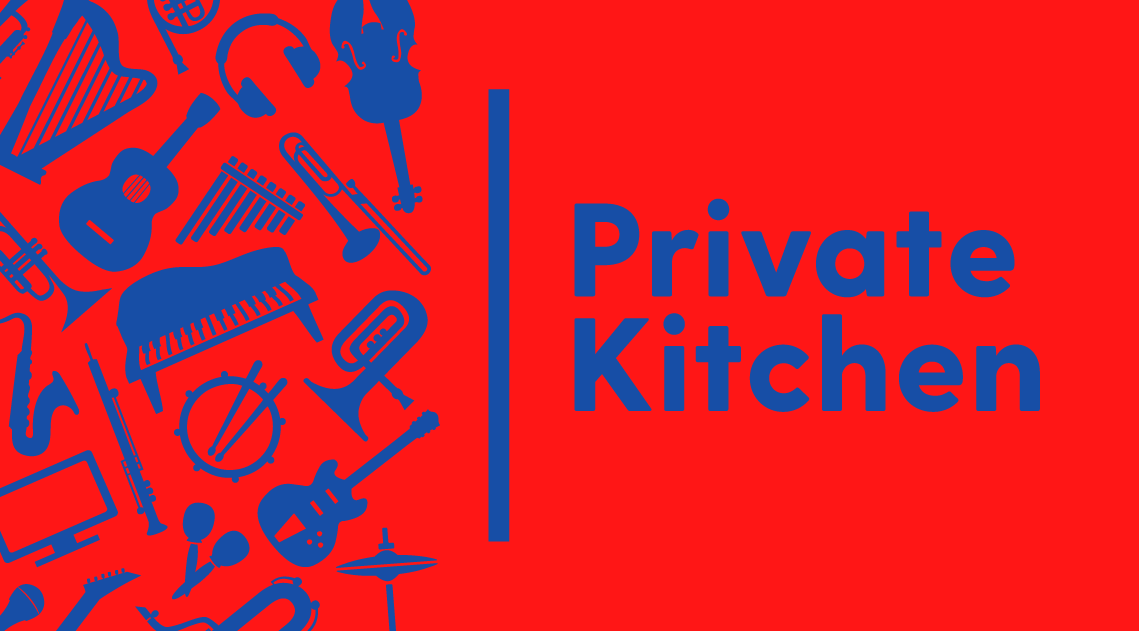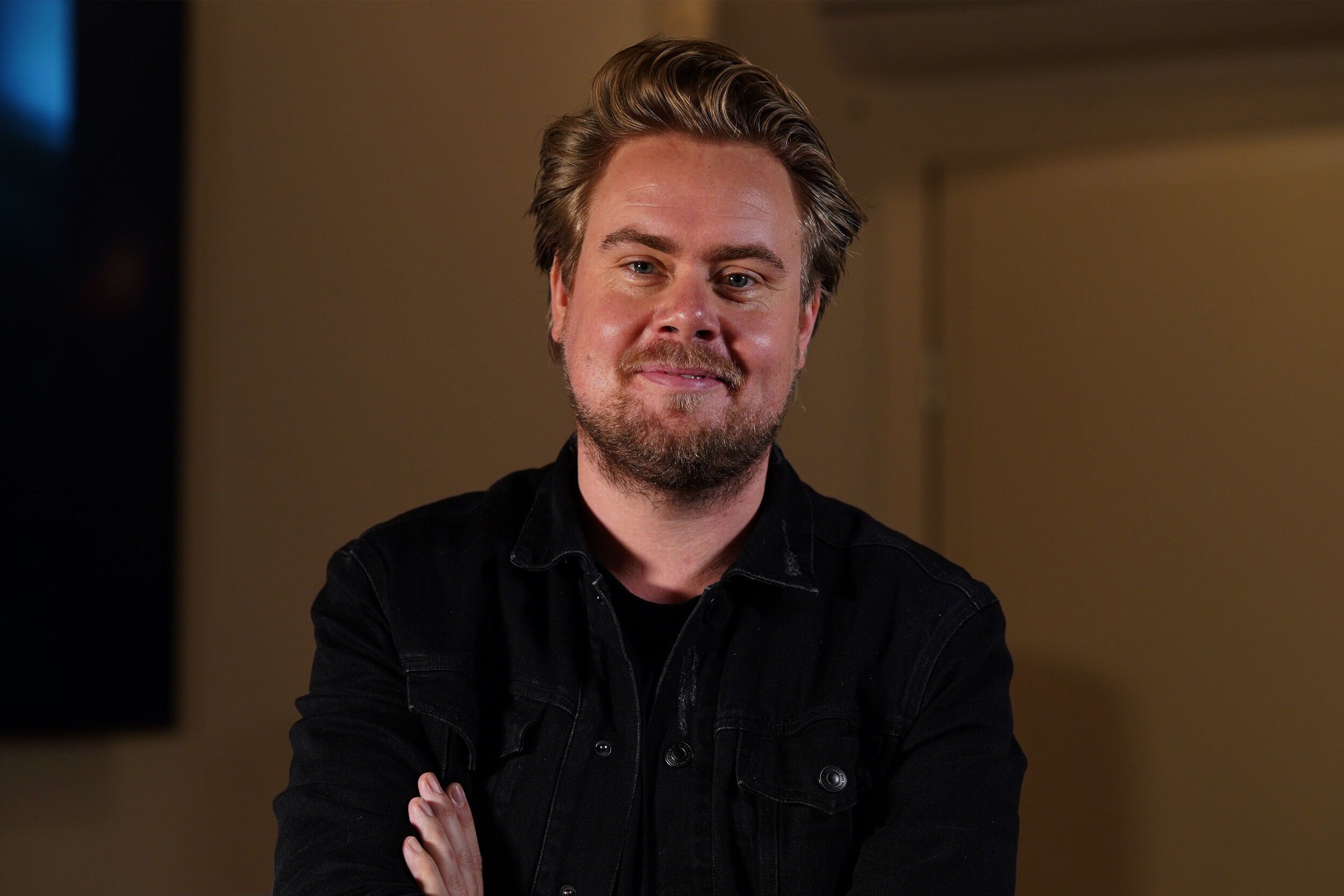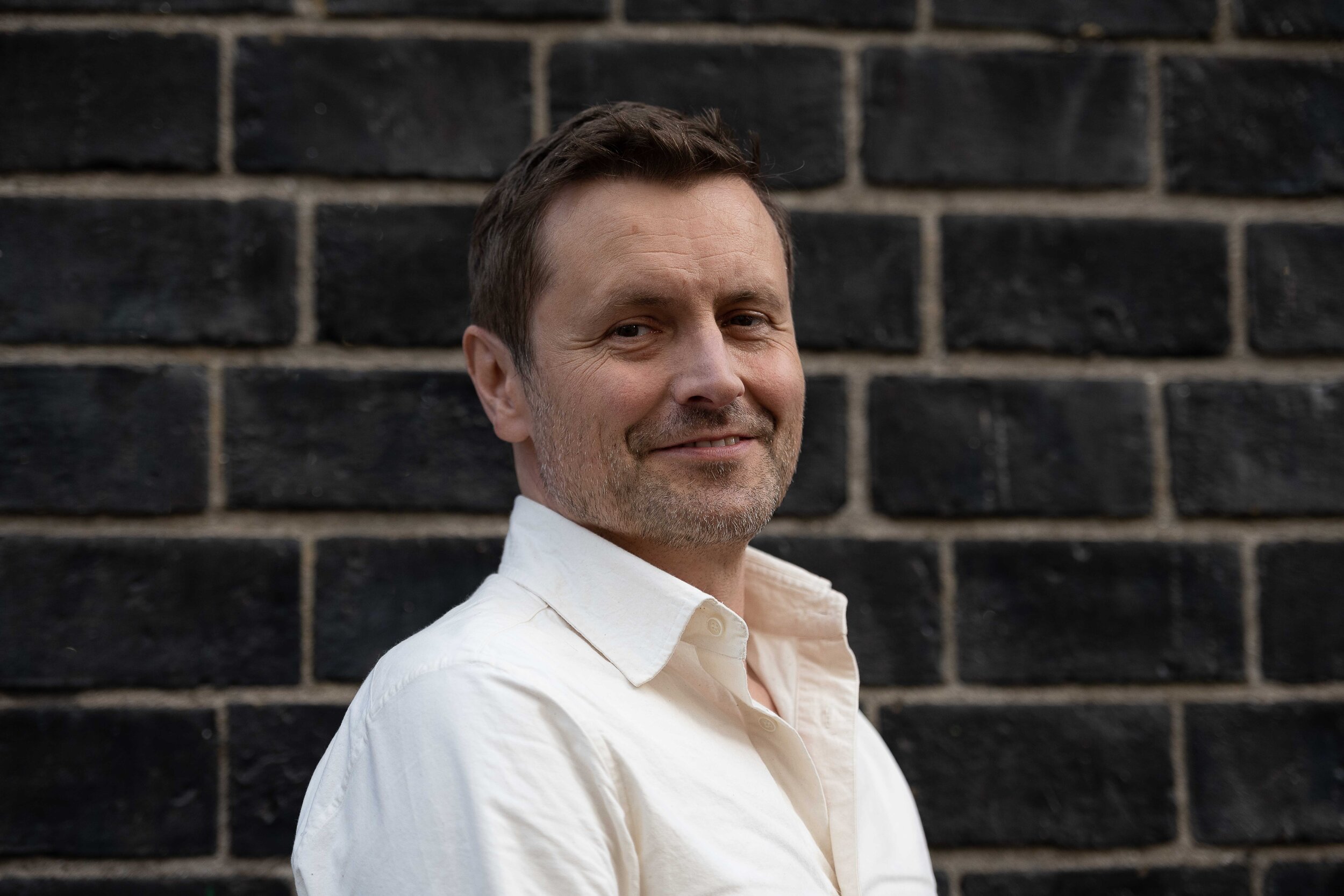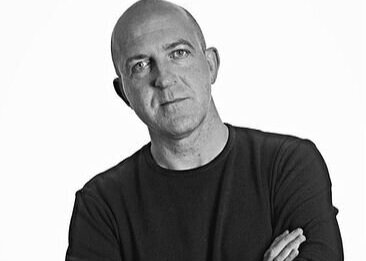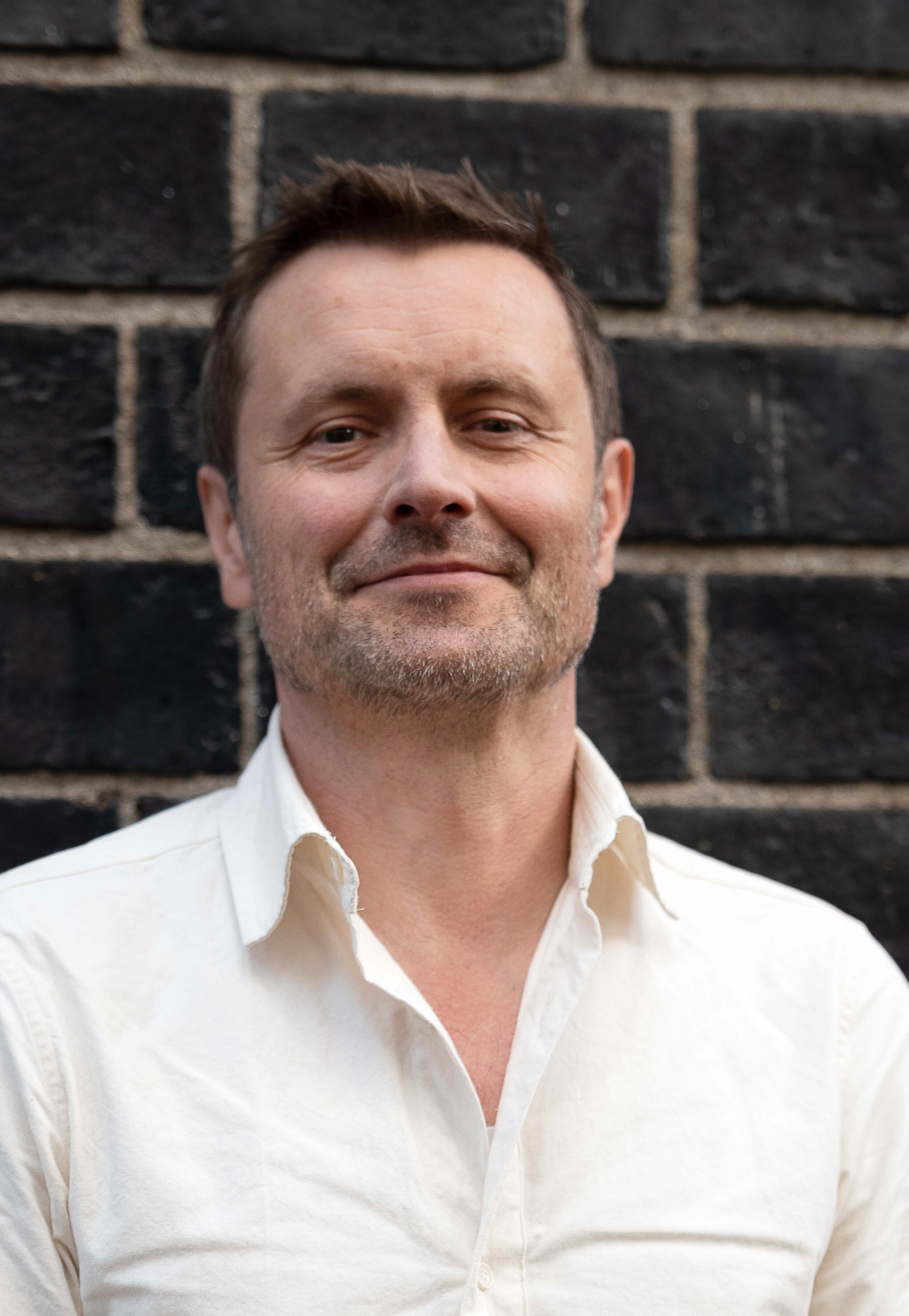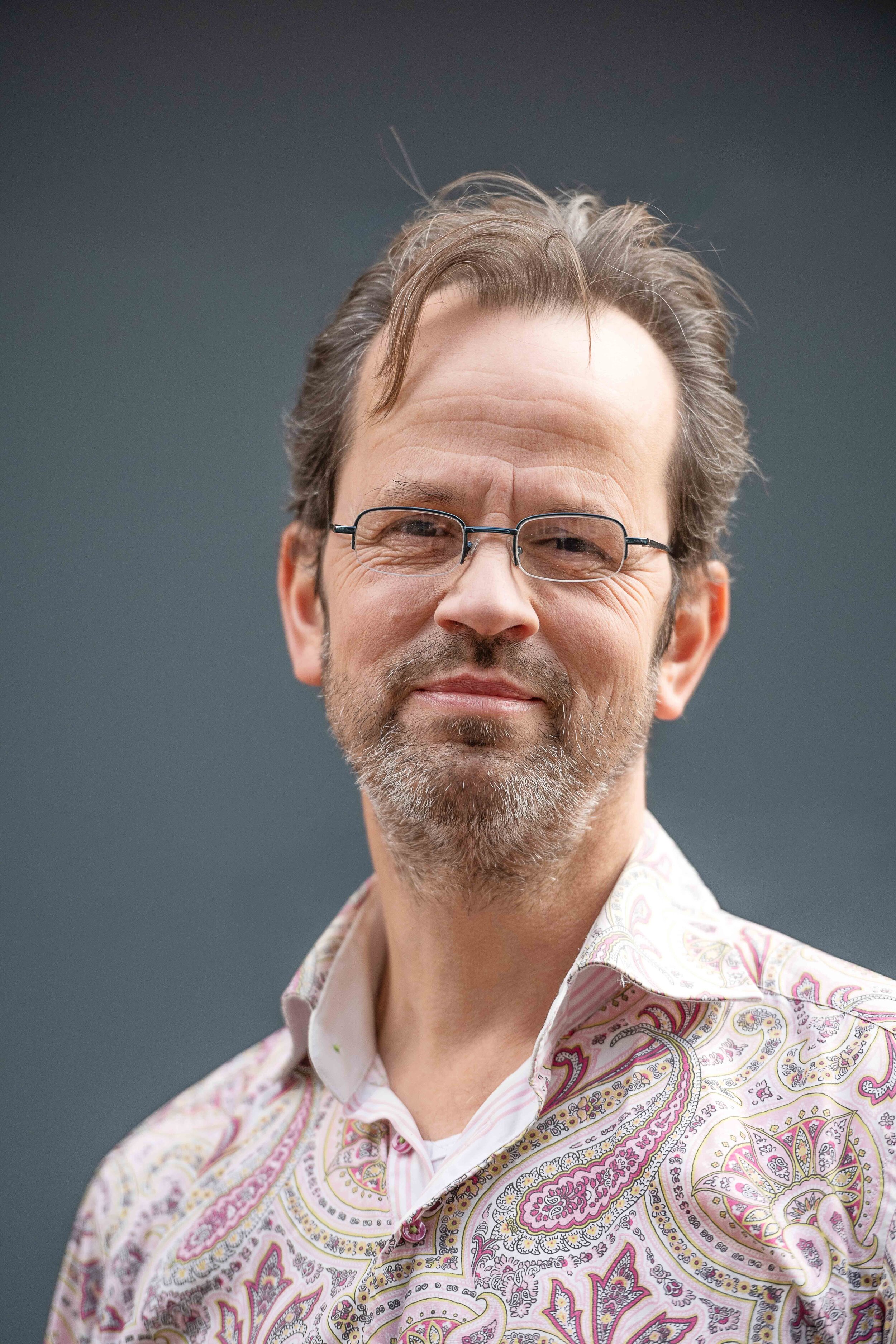
Private Kitchen
EDITION #1
MUSIC AND FILM
In this edition the film composers Han Otten and Maurits Overdulve are questioned by Alexa Rodrigues and Simon de Koning about their film music and the related process for the film Marionette which was released October 2020.
We also take a look at the studio of film composer and performer Jorrit Kleijnen and ask him ten magical questions. Chris Smith writes about a ‘marriage of aesthetics’ and Vidjay Beerepoot tells us how to build an international career as a film composer.

Private Kitchen |
#1 MUSIC AND FILM
IN THIS EDITION
Filmcomposer Loek Dikker reflects on the nowadays practice of film scoring, the relationship with sound design and synthesized sounds and film scores.
Filmcomposer Jorrit Kleijnen informs us about his work flow answering ten questions and – as an encore – he reflects on his internship with Christopher Young (Spiderman III), his band HAEVN and much, much more.
Han Otten tells us everything about microtonal music, the collaboration with another composer, working with orchestras, the use of temp track and his music for the feature film Marionette.
The Dutch film composer Vidjay Beerepoot has been working in Hollywood for ten years and is currently composing music for the international animated film Ainbo. He tells us everything about having a career in Hollywood: the do’s and don’ts.
Are you a film director or producer and are you looking for a composer for your film? Please contact Private Kitchen and we will arrange mediation.

Amuse
The taste of film music: Look what’s in the fridge, softy!
Loek Dikker - film composer
After the first uneasy steps of composed film music, the answer to the question of how film music sounds has been unambiguous for many years. But that has changed. The issue of available resources plays a major role in this.
It must have been around 1986 when the question "Are we going to record with real instruments, or with an electronic orchestra?" was seriously considered. For the first time, it had become possible to record a sample that lasted more than 8 seconds. And suddenly we could "fake" the instruments of an entire orchestra with a computer.
The computer was not the first electronic extension of resources. Electro-instrumental music had been introduced into pop music as early as the 1950s, and synthesizers were widely available through the 1970s and early 80’s. I myself used synthesizers in music compositions for dance and theater at that time. I eagerly made use of existing studios; operating the devices myself seemed daunting. I went to the studio with sketches on music paper and a description of the sounds I wanted to hear, and the studio boss would create the sounds. As a trained pianist the keyboard itself held few secrets for me. The millions of possibilities to extract multicolored sounds from the synthesizers gave intense satisfaction.
It is not unlikely that this early experience with synthesizers contributed to my first big success as a film composer, with De Vierde Man by Paul Verhoeven. Critics noted that the special use of the strings in particular made the sound of the orchestral music new, hitting exactly the right spot for this particular film.
And this did not go unnoticed.
A few years later, my telephone rang in the middle of the night. It was Hollywood director Joel Schumacher: There was a movie starring the young Johnny Depp in need of music and there was a budget, and before I knew it, I found myself at LAX. I was picked up by a producer who was familiar with The Fourth Man: As it turned out, the movie had gained cult film status in Hollywood.
Even though the filmmusic was written for a symphony orchestra, he inquired if I had used a synthesizer. The process of composing a bulky orchestral score is grueling and lengthy, so it was quite shocking to be asked if my sound had been the result of “pushing a couple of buttons”.
I later listened back to the score and tried to hear what he had heard. I found that indeed, it sounded as if the composer had written synthesizer-esque sounds for the orchestra.
I realized something: If you can copy an orchestra with electronics, you can also copy electronics with an orchestra.
In the 70's and 80's, music and sound design were still kept strictly separate. The term design was rarely used: it was atmo, film sound, sound effects.
As a composer, I don't remember ever consulting with the sound guys. Not even on the famous Warner Brothers Sound stage. It always fit together somehow, or it was made to fit.
Nowadays this practice is different. Since the 90’s, film music and film sound have rapidly merged into a coherent blend of sound, working together to support the purpose of the film. Sometimes the composer even does the entire sound post-processing.
It is quite common to use orchestral music in films or series with a historical touch. In The Queen’s Gambit we find a striking example of a series in which the music, by Carlos Rafael Rivera, is brilliantly composed, not relying only on the usual emotional value of orchestral colours, but also using true musical building blocks -as if someone like Beethoven has been transpiring from the temp music.
Now that’s cooking; to everyone’s delight, a real chef is speaking here!
Come and see! Come and listen!
Loek Dikker
Jazz pianist
Film composer
Chairman of Music Institute MultiMedia

My Kitchen
An interview with Jorrit Kleijnen
Jorrit Kleijnen (1986) graduated in 2008 from HKU University of the Arts Utrecht as a media composer.
After working in Hollywood for composer Christopher Young, he and Alexander Reumers start the company "Paraphrase", a collective specialized in music composition for commercials, drama series and films.
This collaboration has resulted in music compositions for campaigns by Ikea, Samsung, Vodafone, Albert Heijn, KLM, Audi and Efteling, as well as a Golden Calf nomination for their score for the arthouse film Gluckauf.
During his work as an advertising composer, Jorrit got to know songwriter Marijn van der Meer in 2014. There’s a great musical synergy between the two and they spend a lot of time together in the studio.
When BMW uses one of their songs "Finding out More" in an advertising campaign in the spring of 2015, there is great interest in their music and they decide to form the band HAEVN. The pop music with cinematic arrangements and dreamy melodies can count on a lot of response. 2016 was the year of Noorderslag, a sold out Paradiso, an Edison and 3FM award nomination for best newcomer.

MY KITCHEN - JORRIT KLEIJNEN
interview part I
In this interview Jorrit gives some insight in his design process along ten questions which address topics such as preparation, technology, how to get ideas and the function of Energy Drinks.

MY KITCHEN - JORRIT KLEIJNEN
interview part II
Jorrit tells us what he learned from Christopher Young and what the differences are between Hollywood and the Dutch media industry. How do you divide your time between composing film music and writing and performing pop songs? And what does LEGO in the life of a film composer?

Main Course
An interview with Han Otten
Introduction
Han Otten is a film composer, also working for contemporary dance and other media.
During his music studies at the HKU University of the Arts Utrecht he already started composing for Dutch Film academy's student films. One of his first projects was the score for the student film ‘Marionettenwereld’ by Elbert van Strien, which won a Student Oscar in 1994.
He has been scoring films ever since and has created scores for a large number of feature films and worked with Peter Greenaway, among many others, recording with a broad palette of European Orchestras in the process.
His most current project is the score for the psychological thriller ‘Marionette’, which is a remake from the student film from 1994, coming full circle.
Regarding contemporary dance, he started working with Jiří Kylián for 'Car-men' (2006) a dance film, which won awards all over the world, and created 4 more soundtracks for Kylian, among these last year’s ‘Scalamare’. His collaboration with Hungarian-Dutch choreographer Krisztina de Chatel comprises 11 pieces to date. A double bill with two of these pieces premiered in Amsterdam's city theatre September 2018. He recently created the music for ‘Peter Pan’ (chor. Emanuele Suavi) by the Bavarian state theatre Gaertnerplatz in Munich.
What is it like to be a film composer?
Alexa Rodrigues and Simon de Koning question Han about the peculiarities of being a film composer, having your own individual sound, the needed social skills, the collaboration with a director, the use of temp track, and much, much more
What about microtonality and co-composing in film music?
We watch a scene from the feature film Marionette and Han tells us about the use of microtonality in film music and how this affects the perception of the audience. Alexa introduces co-composer Maurits Overdulve and Han and Maurits discuss their collaboration for Marionette: how do you divide the work that has to be done?
How to deal with acoustic instruments and orchestras in film music?
We watch another scene from the feature film Marionette and Han reveals his approach to this scene which is a ridiculous fast tempo for orchestral music. How do you get this done with an orchestra? And should you, being a film composer, play an instrument yourself?

Marionette - trailer
Trailer for the feature film “Marionette”
Regie & Scenario: Elbert van Stien
Cast: Thekla Reuten, Peter Mullan, Bill Paterson, Emun Elliot, Elija Wolf, Sam Hazeldine, Rebecca Front
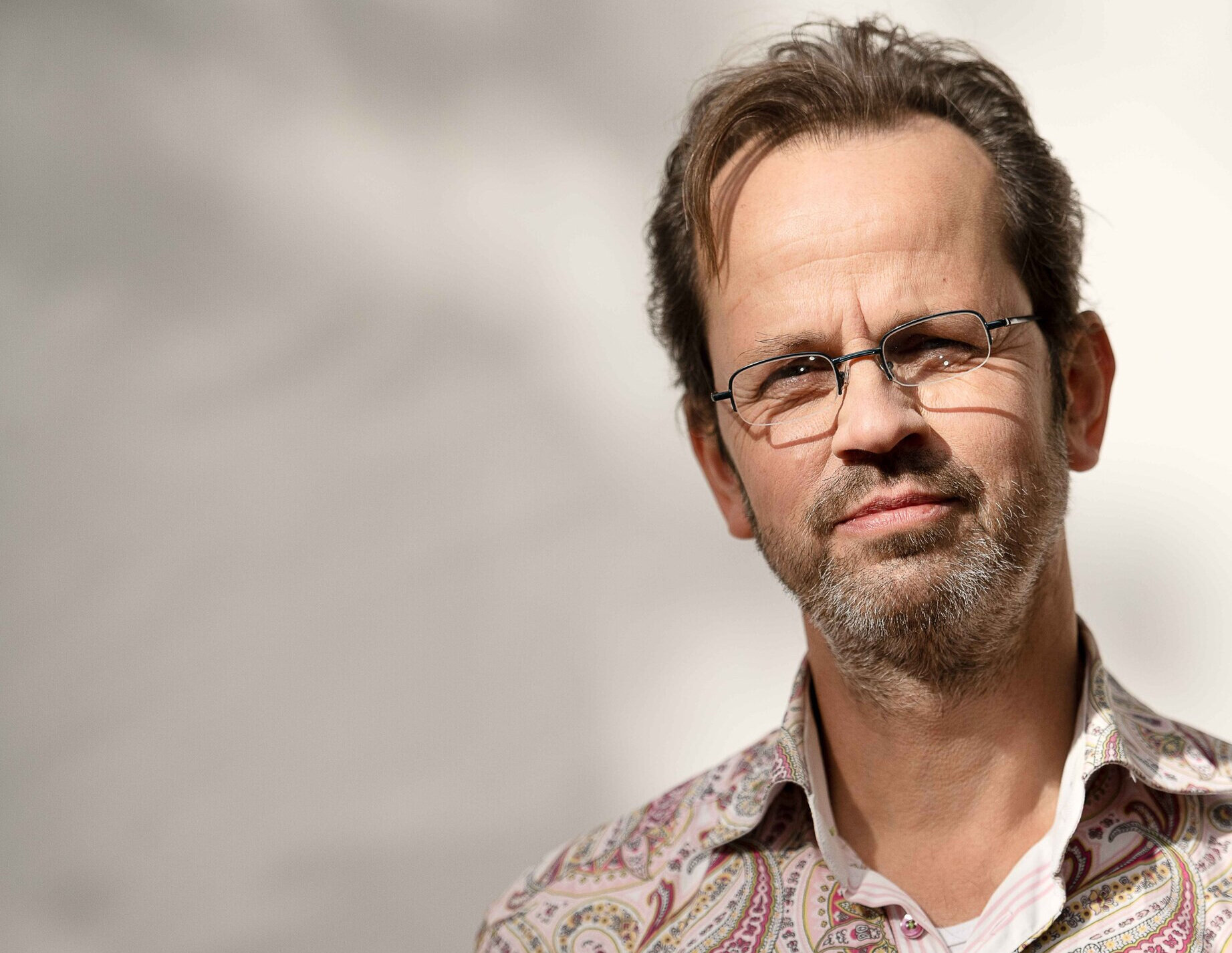
SPECIAL GUEST
MAURITS OVERDULVE
Maurits Overdulve composed music for various films and television productions. His film music was performed by various national and international orchestras and ensembles. In 1992 he co-founded the composers collective Soundpalette. In addition, he also writes a lot of music for dance and theater productions, both on commission and on his own initiative.
His style betrays late romantic and 20th century (programmatic) music as sources of inspiration. Nevertheless, he does not shy away from electronics; although this always has a certain acoustic quality in his work.
How to relate to temp track and push an orchestra to its limit?
Another scene from the film Marionette tells us how to stretch violin players to their limits. Han and Maurits also discuss the use of temp track by directors and how to deal with this phenomenon being a film composer.
What are the differences between modern dance and film? Between film music and sound design?
In this chapter Han and Maurits discuss composing for different media and art forms such as film and modern dance: are there any differences? And when becomes music sound design or the other way around?
about working with a composer
Director Elbert van Strien (Marionette)
Music is like an actor in the film. When an actor doesn’t play the right subtext, my job is to ask him to adjust it, otherwise the scene would probably land on the floor of the cutting room. The same goes for an editor or director of photography. A shot needs to be chosen in such a way that it carries the storytelling and central idea of the film. In case a composer writes a cue that doesn’t work, because it communicates the wrong idea or wants to tell a story on its own that doesn’t serve the story, I need to ask him to adjust it. This is also where the tension lies between composer and director. The talent of the composer determines whether he is able to be flexible enough while still retaining his own unique voice. Sometimes, in addition to talent, it takes time, energy and perseverance to find the gold. In Marionette Han and Maurits managed to achieve this very well.
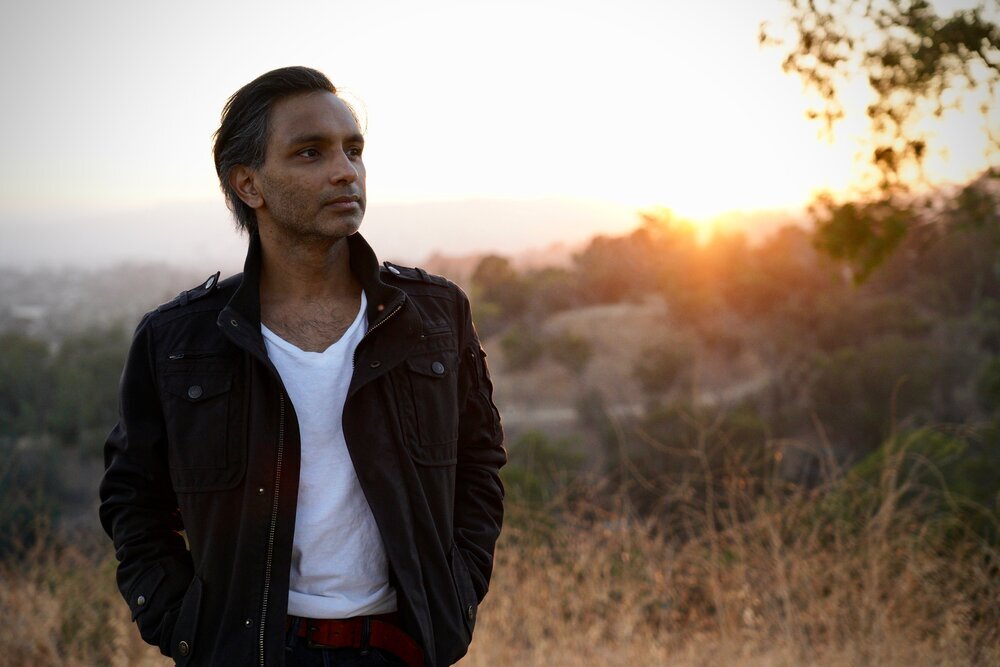
WORLD CUISINE
VIDJAY BEEREPOOT - Film Composer
Vidjay Beerepoot is an award-winning composer from the Netherlands. He has worked internationally as one of Europe's youngest established professional composers on some of the most popular TV shows and biggest films in Europe.
His interest in music started at the age of eight. Vidjay started to play piano in several pop and jazz bands and orchestras. He entered the world of music composition when he composed his first piece for a theater stage production. After this experience Vidjay never stopped composing music.
He joined the Utrecht School of the Arts in Hilversum, The Netherlands where he received a Bachelor of Music with Honors and a European Media Master of Arts in Composition in Context from the Open University in Portsmouth, United Kingdom in 2005.
During these studies, his love for movie music was born.
Vidjay worked part time as the music and sound supervisor at post production studio Moving Magic in Amsterdam where he composed and produced music and sound design for clients like EMI, SONY, AKZO NOBEL & ID&T.
In 2004 he started his own audio post production company SoundVibe Music where he composed and produced music for various feature films, corporate productions, television shows, theater productions and music albums. His clients include Nickelodeon, MTV, Microsoft, Endemol International, Studio 100, Bavaria, SBS Broadcasting, AVRO Television, EO Television and many others.
Vidjay wrote music for numerous award winning films and TV shows including the Golden Calf winning film The Pool, the Golden Calf winning film Broken Moon, the RTL4 hit TV show Life & Cooking, the Nickelodeon hit TV show Naranjina and Samson & Gert for Studio 100.
In 2010 Vidjay moved to the film capital of the world: Hollywood, Los Angeles to study at the 'Scoring for Motion Pictures and Television' program at the Thornton School of Music at the University of Southern California. He graduated in 2011 with several honors and awards including the prestigious Outstanding
Graduate
Certificate of 2011.
In 2012 Vidjay was lucky to work with this amazing multiple grammy winning Metropole Orchestra, writing arrangements for jazz icon Kurt Elling, Humphrey Campbell, Alessio Franchini and Gary Lucas. One of the highlights was to work on the Jeff Buckley Tribute Concert in the famous Music Venue Paradiso, Amsterdam.
Now located in L.A., he has worked with John Powell (Rio, How to Train Your Dragon, Shrek, The Bourne Series, and Kung Fu Panda) and Tom Holkenborg AKA JunkieXL on the biggest studio films at Remote Control Productions owned by academy award winner composer Hans Zimmer.
In 2012 Vidjay took part of the prestigious ASCAP Film Scoring Workshop with Primetime Emmy winner host Richard Bellis where he composed, orchestrated and conducted a composition for full orchestra recorded at the famous Alfred Newman Stage at the 21th Century FOX Studios. Vidjay was very honored to receive ‘The ASCAP Foundation Steve Kaplan TV & Film Studies Scholarship award’.
His love for the suspense, spy, action, comedy and drama genre will be heard through his music. It always serves the picture and Vidjay’s music brings stories to life.
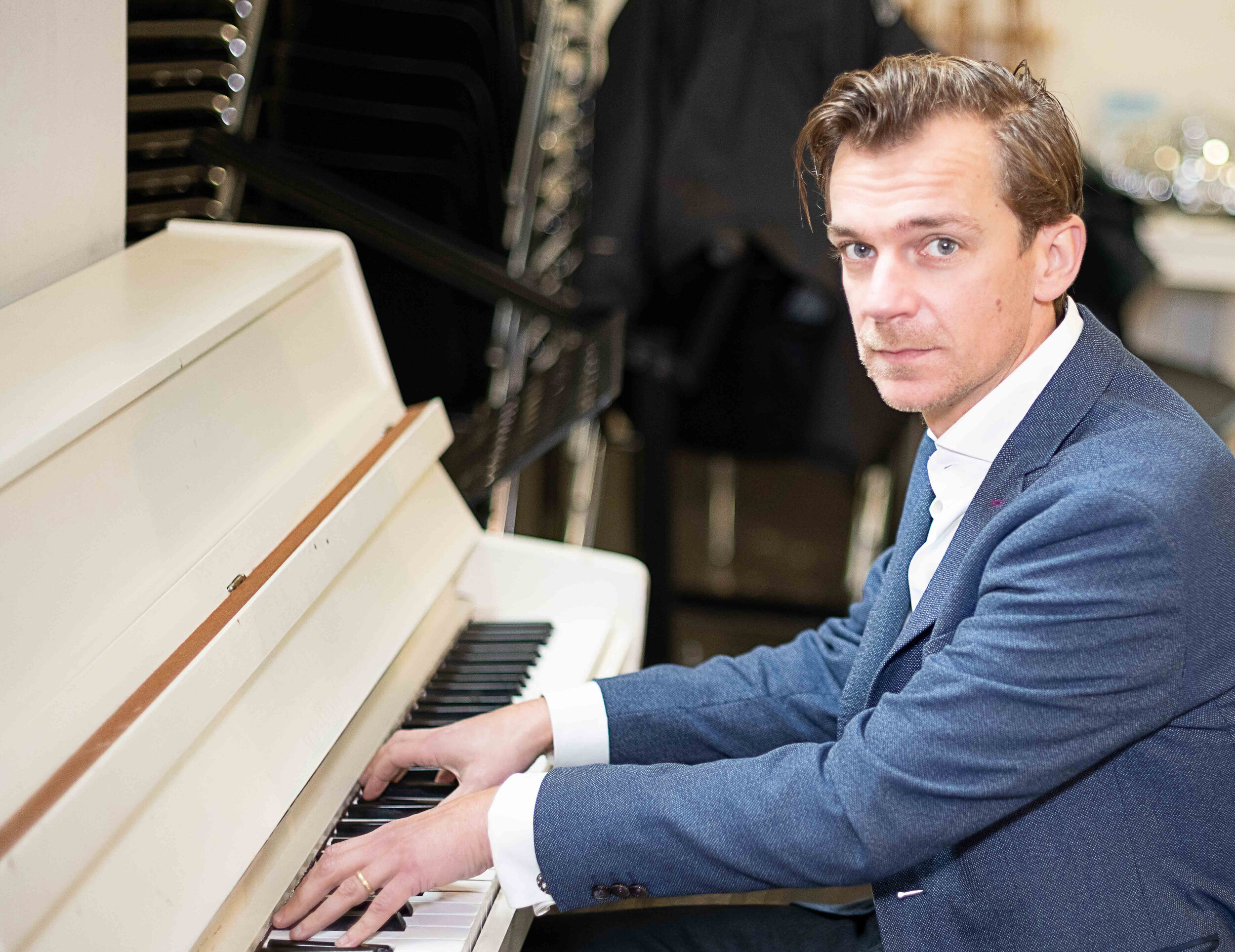
Interview Vidjay Beerepoot BY Simon de Koning
World Cuisine
Based on ten years of 'Hollywood experience', Vidjay talks about working in international film productions such as the animation film Ainbo. He also tells us how to build a career as a film composer in the American film industry.

COOK WANTED
Help composers find their way into work: Pitch us your projects.
Are you a film director or producer and are you looking for a composer for your film?
Please contact Private Kitchen and we will arrange mediation.
CHRIS SMITH
FILM COMPOSER
Chris Smith is one of the UK's most respected producers and composers of media music, being also involved in creator's rights.
His has been a board member of the British composers' academy BASCA, -now Ivors Academy- and he ran the Faber Music Academy (Faber is representing composers like Danny Elfman and Thomas Adès). Recently he is a board director of PCAM, the society for composers and producers of mediamusic.

Grand Dessert - guest editorial
A MARRIAGE OF AESTHETICS
by Chris Smith - Film Composer
Every film tells a story. Every story is different.
Although the Big Abiding Themes that inspire all creative endeavour remain constantly at the centre of every story, they reappear every time dressed in subtly different clothing. If the role of the film composer is to help tell the story, then every film demands from the composer a new voyage of discovery, a new way of approaching old themes. If a film sits solidly within an established genre (think action drama, superhero, western, horror) then there exists a vast – and probably distracting - oeuvre of stylistic musical references that the composer can choose to embrace or consciously ignore.
But: the vast majority of films, and especially those made outside the Hollywood/Bollywood production hubs, do not conform to an easily defined type and do not provide the composer with a convenient stylistic road map.
The film composer must find a way to sculpt his or her aesthetic so that Composer Voice and Director Voice appear as one. The director Andrew Stanton describes a working process with Thomas Newman as “searching for the adjective that works for both director and composer”. It is therefore hardly surprising that successful working relationships between composers and directors can span decades once established.
So, often the richness of a narrative depends upon emotional ambiguity.
A shared intuitive understanding between director and composer, of how and where to strike a balance between making a statement and remaining enigmatic, when to be audible and when invisible, when to push the story and when to get out of the way, is vital. It is a shared understanding that is slightly mysterious. Thomas Newman talks of “allowing the ears to find colours”. I have often referred to film music as ‘emotional propaganda’, but like all propaganda, it is at its most powerful and effective when working at an almost subliminal level.
The natural result of such a unified aesthetic between director and composer is trust. Steven Spielberg describes the production flow of a film as ‘all these teams of people working together who then present the fruits of their labour to John Williams’. If such trust does not exist it will naturally lead to what can perhaps best be described as Fear of the Film Composer, an uncomfortable problem that I am sure many of us have encountered!
Some years ago I was on a panel with other composers all working in different fields; concert music, theatre, ballet, branding, film, discussing our creative processes. It soon emerged that what we had in common far outweighed any differences. What distinguished us from each other were no more than subtle points of emphasis. I used the analogy of decoration: if each of us were to design and decorate a room, they would all be different, but they would equally all be well conceived and pleasing.
In some art forms, such as concert music, the composer defines the aesthetic of the work as the single creative individual. As film composers we always retain our aesthetic but must be able to shape it to serve a collective creation. We complement the flavours created by others by adding our own secret sauce.
Chris Smith










PRIVATE KITCHEN MAGAZINE IS CREATED BY
Private Kitchen - Main Course
Loek Dikker - executive producer
Rens Machielse - executive producer
Sebastiaan Donders - producer
João Rodrigues - show producer / director
Alexa Rodrigues - host / set design
Simon de Koning - host
David Dramm - host Splendor / location
guests:
Han Otten - film composer
Maurits Overdulve - film composer
Maja Andersson - camera / editing
Lucas Kauter - camera / lights / editing
Nathalie de Jong - camera
Guy Dagan - camera / crane
Hans van Eck - sound
Kateryna Peliukh - photography
Alisa Durgun - make-up / styling
Private Kitchen - World Cuisine
Simon de Koning - host / interview
Sebastiaan Donders - editing
guest:
Vidjay Beerepoot - film composer
Private Kitchen - My Kitchen
Rens Machielse - producer
João Rodrigues - AV director
Alexa Rodrigues - host / interview
Maja Andersson - camera / editing / photography
guest:
Jorrit Kleijnen - music composer
Private Kitchen & Magazine
Rens Machielse - chief editor
Sebastiaan Donders - designer / editor
Loek Dikker - editor
Kateryna Peliukh - photography
